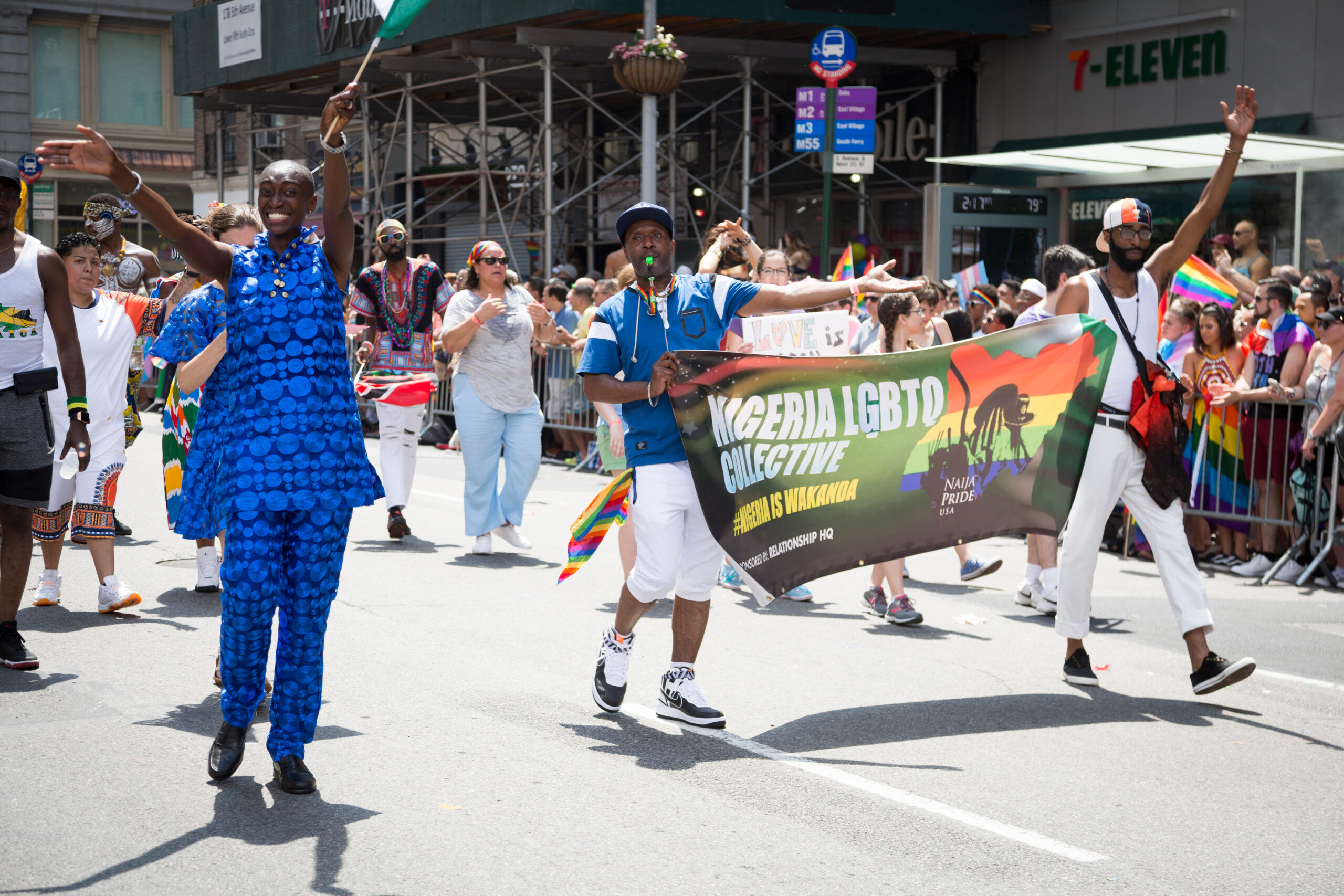It took a national advocacy campaign and more than a year and a half, but last Friday, Udoka Nweke walked out of ICE detention in the Mojave Desert and into the night.
“Oh my god, God is good,” he told advocates as he exited Adelanto ICE Processing Center, his paperwork and medications held in a plastic trash bag at his side.
In 2016, the gay 29-year-old escaped Nigeria, where a homophobic mob reportedly tried to kill him. Nigeria has banned same-sex relationships since 2014, with punishments carrying prison sentences of up to 14 years. LGBTQ people can executed in some parts of the country.
Nweke surrendered himself at San Ysidro port of entry in California, and was taken into custody. He lost his initial asylum claim, and has waited at Adelanto while his case drags on.
LGBTQ organizations have been demanding his release since May. Nweke experiences mental illness and survived two suicide attempts in Adelanto.
Advocates warned that ICE’s refusal to parole Nweke jeopardized his life.
“When Udoka presented himself at the border, he came with the trauma of being attacked with knives at home and witnessing the death of an intimate partner due to his sexuality,” said Ola Osaze, national organizer for the Black LGBTQ+ Migrant Project at the Transgender Law Center, in a statement. “These are the conditions that create queer and trans migration, and sending someone who’s experienced this violence to a detention center is inhumane.”
Adelanto has faced a string of human rights abuse allegations. In 2015, more than two dozen members of Congress pressed federal officials to investigate private ICE contractor GEO Group’s oversight of Adelanto in a joint letter. Last year, ICE officials reported three deaths at the facility.
In a visit with INTO while still in detention, Nweke said he had experienced violence and verbal threats at Adelanto because he is gay.
In May, ICE officials pushed back against claims that detention was threatening Nweke’s life.
“In the ongoing evaluation of his health, medical professionals have determined that Mr. Nweke does suffer from mental illness, which is managed with medication and closely monitored by mental health professionals,” the agency said in an email to INTO. “Furthermore, Mr. Nweke has not attempted to end his life while in ICE custody; claims to the contrary are false.”
But the death of transgender ICE detainee Roxsana Hernandez in New Mexico this spring fueled concerns for Nweke’s safety in custody.
“It’s someone’s life,” said Luis Gómez, immigration resources specialist at the LGBT Center of Orange County. “I don’t know what he would have done if he would have been kept in confinement for much longer.”
Gómez, who spoke to Nweke weekly on the phone and helped coordinate support for him, is among those now trying to raise money to help Nweke meet his living expenses.
Nweke’s hearing at Adelanto has been delayed repeatedly since late summer. In August, a judge postponed his hearing because severe stress prevented Nweke from sleeping the night before. Later in the month, Nweke was reportedly quarantined due an illness outbreak at Adelanto. His new hearing date has yet to be scheduled, but he could still face deportation.
In months leading up to his release, Nweke told INTO he had stopped going outside at Adelanto because he was too depressed to leave the confines of the building. Last Friday, he left for what advocates hope will be the last time.
“You could just see it in his eyes when he walked out,” said Gómez. “There’s nothing in Adelanto. It’s just desert. But I can only imagine what it was like for him to feel fresh air and be able to look at the moon that night.”
Don't forget to share:
Help make sure LGBTQ+ stories are being told...
We can't rely on mainstream media to tell our stories. That's why we don't lock our articles behind a paywall. Will you support our mission with a contribution today?
Cancel anytime · Proudly LGBTQ+ owned and operated
Read More in Impact
The Latest on INTO
Subscribe to get a twice-weekly dose of queer news, updates, and insights from the INTO team.
in Your Inbox













